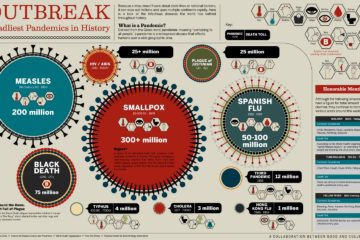Over the last few years, I have heard a lot about Ahimsa Milk. There have been discussions about, whether animal milk can ever be free of some form of violence, if it’s the best we can do so far, whether it’s the lesser ‘evil’ and so on.Â
I approached Ahimsa Milk with a few questions, which they’ve kindly answered. I would love to hear your thoughts after you’ve read the article, so please do get in touch using this contact form or the social media links which are at the bottom of the page.Â
How do you ensure you have enough milk to meet demand?
We do not. We cannot meet the present growing demand. We are extremely careful not to compromise on our principles. We would like to model a way in which, in time, those who choose to drink animal milk, reduce how much they drink and that they only use the right quality of milk i.e. slaughter-free.
Are there items added to the milk to keep it from going off’? If so, what are they?
Absolutely not. We produce two types of milk – raw mainly, and pasteurised for those who cannot drink raw or have young children.
Are the cows impregnated if they don’t get pregnant naturally? If so, how?
No, we follow natural systems. We manage our herd very carefully. We do not get our cows pregnant every year, because the result would be exponential growth. The herd growing this rapidly isn’t something that we can facilitate if we are going to keep every member of the herd for life.
Another way we manage the number in the herd is by castrating the bulls. It would be impossible and dangerous to even attempt to keep a herd of Bulls. We have one bull that’s intact and is used for breeding.
What happens to the male calves?
They grow up to become working oxen. As we have only recently moved onto our own piece of land, we are only now able to start implementing the principles we have been talking about. We are just beginning training activities with some of them. The oxen will work on the farm, they can be incredibly strong once they grow to full size so we may engage them in a range of activities, from harrowing and tilling the
What happens to the cows that no longer get pregnant or give milk?
We retire them and will let them wander on our pasture for the rest of their days – no other expectations. Sometimes they may act as surrogate aunts.
Are the cows kept pregnant? How soon are they impregnated after giving birth?
They become pregnant every 3-4 years. The milk they give diminishes over timeslaughter-freebut that is not an issue for us.
Are the calves kept with their mothers?
Yes, for a minimum of 6 months or until they are able to eat grass by themselves. Our last set of calves were with their mothers for approximately a year. They are grown up now and we have no calves at present.
Are the calves allowed to suckle from their mothers whenever they want to?
Yes, they are. Our last set of calves use to suckle from some of their aunts also, as they were adopted! In fact one of our heifers (a cow that had never had a calf) started to produce milk, the calves use to mother-calf her and to this day she has not stopped giving milk.
Once a cow stops producing milk, or produces too little milk, is she transferred to a farm as a herd (with her existing friends/family) or individually?
She continues to stay with the same herd. However, if she is retired, meaning she will not longer calf or give milk again, she will join the rest of our
Are there regular checks made on the cows once they have been transferred away to a different farm to see if they are kept happy, comfortable and that their needs are being met?
We do not have any cows elsewhere. If in the future we do, we will have to ensure there is a proper herdman to look after them.
Are mothers and calfs distressed when/if separated from each other?
My observation is that when calves are young and dependent, naturally there is distress. Once they have grown up and are independent, less so. It is particularly an issue on farms where calves are taken away from their mother within the first week, we strongly oppose such actions.
Note from the Ahimsa Milk Team
The Ahimsa dairy has been through various stages. Initially, it’s sole objective was to educate the public about the production of milk and demonstrate a slaughter-free approach to dairy farming. Once established we started to emphasize the importance of the mother-calf relationship and subsequently, we focused on issues of AI.
Members of our core team have been vegetarians most of their lives. I myself was a hardcore animal rights activist and vegan as a student and so we are very much aware of the ills of the dairy industry. We wanted to show an ethical path and a symbiotic relationship in action between humans and cows. We wanted to place principle before profit.
This is what Ahimsa Milk shared with me back in 2013Â
Your thoughts…
So what do you think? Is it a good alternative to animal milk that’s produced in ‘typical’ dairy farms? Is it worth pursuing this approach? Is it truly ahimsa free?Â
